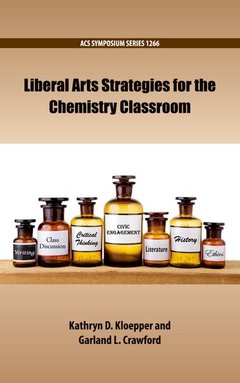Description
Liberal Arts Strategies for the Chemistry Classroom
ACS Symposium Series
Coordinators: Kloepper Kathryn D., Crawford Garland L.
Language: English
Subject for Liberal Arts Strategies for the Chemistry Classroom:
Publication date: 11-2018
212 p. · 15.9x23.7 cm · Hardback
212 p. · 15.9x23.7 cm · Hardback
Description
/li>Biography
/li>
Modern liberal arts instruction promotes student learning, critical thinking, and civic engagement through intentional reading, class discussion, focused writing, and thoughtful reflection. In contrast, science courses tend to focus on exposing students to discipline-specific, technical knowledge. How, when, and why should a chemistry instructor take cues from the humanities and social sciences? What are the best teaching practices from other disciplines, and how can they be adapted to the field of chemistry? This book explores the best practices for making interdisciplinary connections and integrating liberal arts-inspired teaching strategies for a range of courses from high school to upper-level college courses. Chapters include descriptions of themed courses and specific class activities that are all great examples of how to bring liberal arts content into a chemistry class.
Dr. Kathryn Kloepper is an Associate Professor of Chemistry at Mercer University in Macon, GA. She obtained her Ph.D. in analytical chemistry at the University of Illinois at Urbana-Champaign after earning her B.S. at the University of Dallas. She regularly teaches General Chemistry, Quantitative Analysis, and courses in the Great Books general education program. Her current research with undergraduates focuses on the characterization of biosurfactants. She also has on-going scholarship of teaching and learning projects in the areas of bioanalytical chemistry and online learning. Dr. Garland Crawford earned his B.A. from Mercer University and his PhD from the University of Kentucky in Molecular and Cellular Biochemistry. He is currently an Associate Professor at Mercer University in Macon, GA, where he teaches in the General Chemistry and Biochemistry sequences and in the Great Books program. His current research interests include the regulation of protein function through post-translational modification and the methods that students use to learn and incorporate technical language when exposed to a new field of study.
© 2024 LAVOISIER S.A.S.



